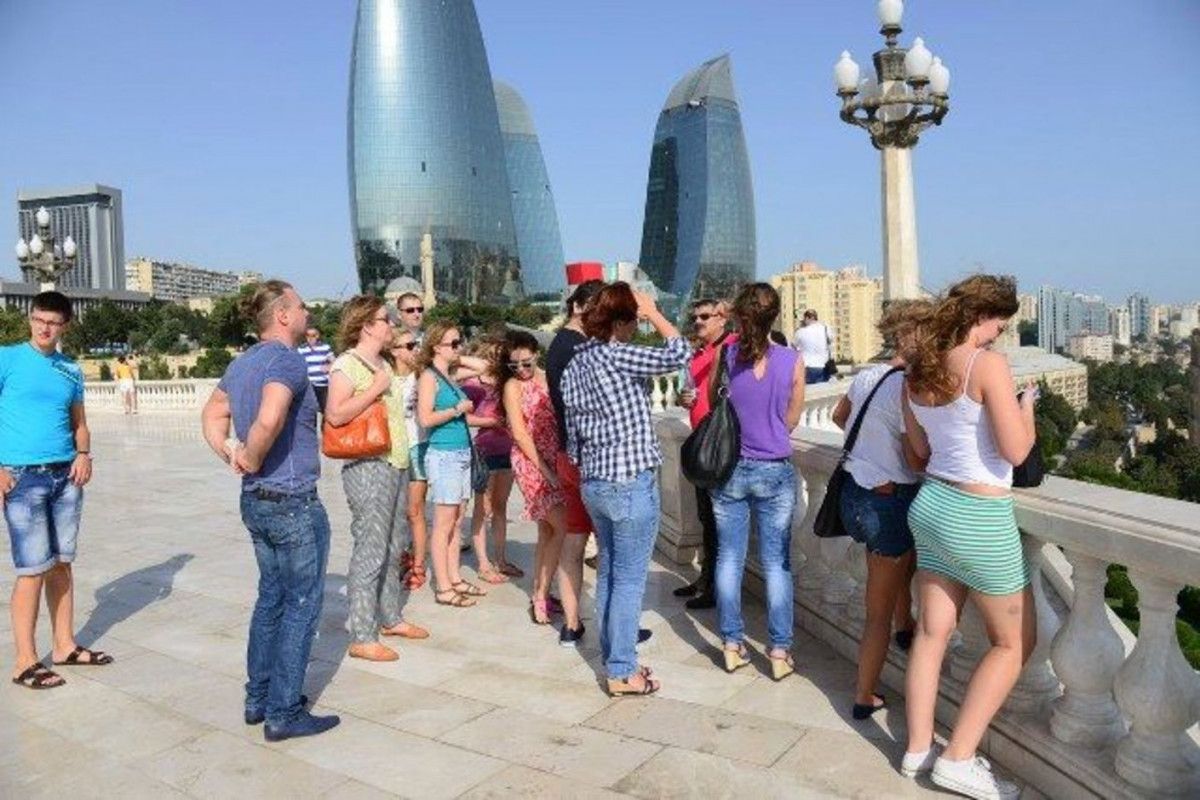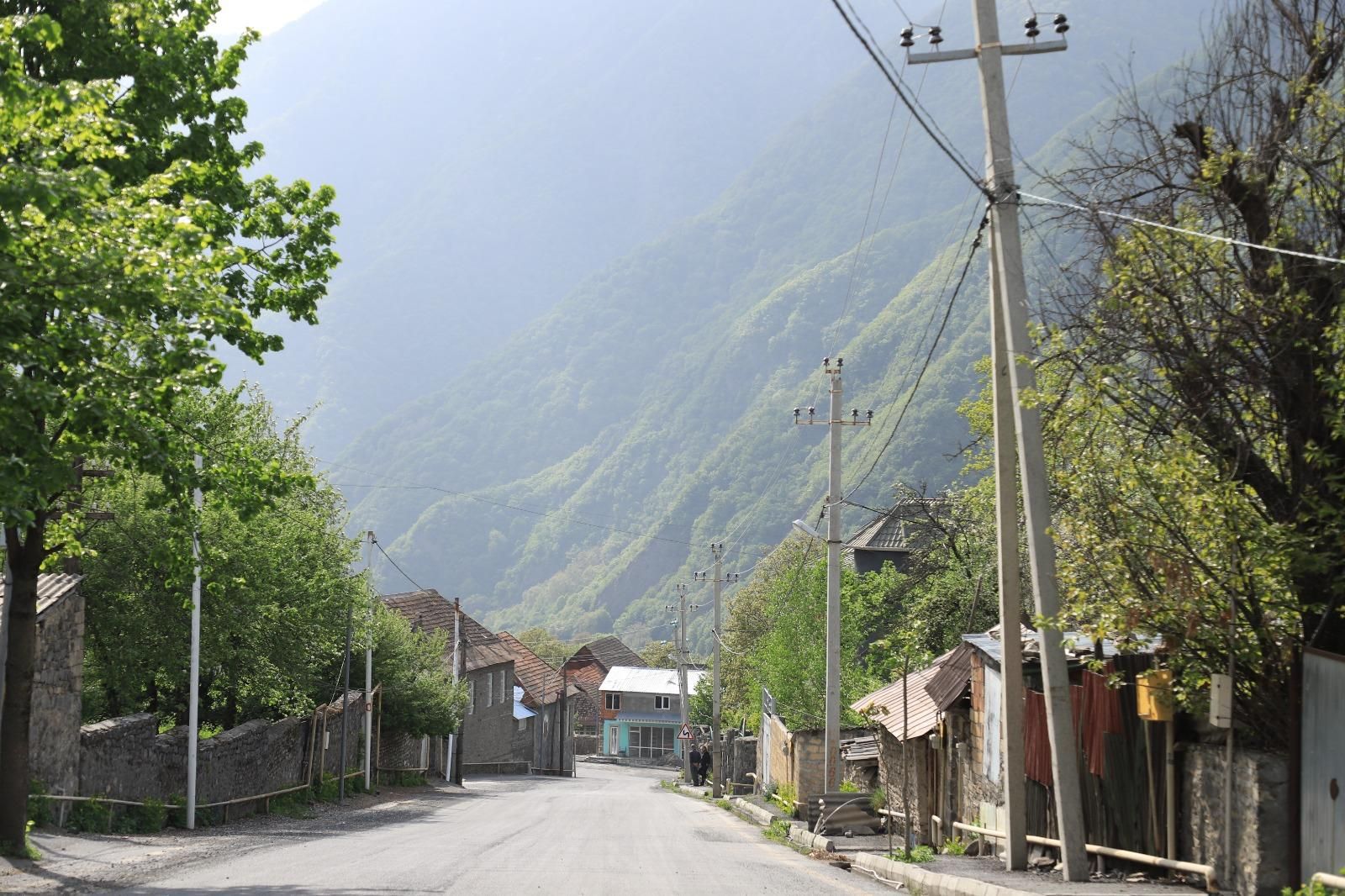|
|
TODAY.AZ / Society
Azerbaijan’s tourism renaissance: Record-breaking milestone on horizon
30 September 2024 [16:22] - TODAY.AZ

Azerbaijan has rapidly positioned itself as a must-see destination for travel enthusiasts, reflecting substantial growth in its tourism sector. This surge was visible during the recent Formula 1 race, and with the United Nations Climate Change Conference (COP29) slated for November, the country is set to further solidify its reputation as a global tourism hub.
Azerbaijan has rapidly established a highly developed tourism industry, emerging as a frontrunner in the Caspian region. The country proudly hosts a multitude of five-star hotels, high-class recreation areas and restaurants, mountain and balneological resorts, and modern airports in various regions. With a robust recreational infrastructure, streamlined visa procedures, and affordable travel options, Azerbaijan achieved a historic milestone in 2019 by welcoming a record 3.2 million foreign tourists, setting an all-time high for the country. Historically known for its oil production, Azerbaijan has shifted its focus towards tourism as a key component of its non-oil economy, recognising its long-term potential as a significant source of foreign exchange earnings.
Notably, this year, the development of new tourist destinations, the liberalisation of visa procedures with several countries, and the initial steps in tapping into the recreational potential of the Garabagh region.
According to the State Statistics Committee of the Republic of Azerbaijan, in the first seven months of 2024, the growth in inbound tourism accelerated further, with a 31.4% increase compared to the same period last year. Russia continues to dominate the incoming segment, with over 630,000 Russian tourists visiting Azerbaijan in 2023 and 360,000 in the first half of 2024—a 20% increase year-on-year. Turkiye holds the second spot, accounting for 16.5% of total inbound tourism, followed by India, which saw a 2.5-fold increase in travellers. Iran and Saudi Arabia round out the top five, contributing 8.3% and 4.2% to the total, respectively.

The current tourist season has proven exceptionally favourable for expanding Azerbaijan's tourism ties with various countries, including distant regions. According to the State Statistics Committee, from January to July, the number of visitors from Persian Gulf countries reached 258.8 thousand, marking a 39.6% increase. Meanwhile, arrivals from European Union countries grew by 28%, and from CIS countries by 20.5%. In addition, for information, the "Socio-Economic Development Strategy of Azerbaijan for 2022-2026" formulates the task to increase the share of tourism in the country's non-oil GDP by 1.5 times compared to 2019, increasing the share of industry revenues by an additional 20 percent over the next four years. According to the calculations of the State Tourism Agency of Azerbaijan, in the medium term, the inbound tourist flow in the country is planned to reach 4 million people, and domestic tourism indicators - up to 6 million people.
An exciting initiative supporting this growth is the launch of the "Tourist Village" project. In cooperation with the State Tourism Agency and the State Employment Agency, this project seeks to support tourism activities in rural villages with high tourism potential. The goal is to create alternative accommodation for both local and foreign tourists while improving the well-being of local communities and family farms involved in tourism. Initially, 20 guest houses in the Laza village of the Gusar region, as well as Ilisu and Saribash villages of the Gakh region, will be equipped as part of the "Agrotourism" initiative. This project also aligns with the broader goals outlined in the "2022-2026 Socio-Economic Development Strategy."

So given this context, as mentioned above, with the upcoming COP29 event in November bringing an anticipated 80,000 foreign visitors, a record-breaking milestone is indeed on the horizon.
Of course, the anticipated numbers might raise questions such as, How ready is the country?
Well, in order to enhance the quality of service within the hospitality sector, recent efforts have focused on expediting the certification process and awarding stars to hotels, alongside initiatives to improve the qualifications of hotel staff. A key strategic direction has been the attraction of global hotel brands and the encouragement of local hoteliers to invest in the country's regions. In that regard, the Azerbaijan State Tourism Agency (ASTA) has been focused on showcasing the country’s diverse tourism opportunities in many countries, such as Kyrgyzstan, Japan, the UAE, Turkiye, the USA, and so on. It’s also important to note that, the country's hotel infrastructure has seen an impressive eightfold increase in the number of hotels and hotel-like facilities for the first time in almost a decade. Now the total numbers are approximately 757 establishments with 56,562 beds.
As COP29 hosts, there is another objective ahead, which is the enhancement of green tourism. So, to bolster "green" tourism, Azerbaijan has established a network of national parks, with plans for more and offers equestrian, hiking, and mountaineering routes in the scenic mountain forests of the Greater Caucasus. Notably, Azerbaijan is home to 350 active mud volcanoes, a rare natural phenomenon. As a record-breaking achievement on the horizon, we can assure, that this ‘hidden gem’ of a travel destination is yet to prove and rise even more!
URL: http://www.today.az/news/society/253539.html
 Print version
Print version
Connect with us. Get latest news and updates.
See Also
- 10 February 2025 [10:18]
Ship operations in Caspian Sea fully resumed after weather stabilizes - 08 February 2025 [17:00]
Azerbaijan's Health Ministry launches HIV prevention syringe initiative - 08 February 2025 [16:30]
MES launches nationwide safety awareness campaign in schools - 08 February 2025 [14:20]
Azerbaijan Army’s marines participate in AMAN-25 Exercise and AMAN Dialogue - 08 February 2025 [13:45]
Students in Khankendi informed about consequences of harmful habits - 08 February 2025 [13:15]
Cooperation issues with International Turkic Academy discussed - 08 February 2025 [12:40]
Azercosmos hosts Aerospace and Digital Innovations Forum for high school students - 08 February 2025 [11:35]
Azerbaijan, Georgia, Turkiye, and Bulgaria advance Green Energy Corridor discussions - 08 February 2025 [10:30]
Temporary restrictions on meetings in military units - 07 February 2025 [14:55]
Remains of martyr from First Garabakh War laid to rest after 31 year
Most Popular
 Azerbaijan, Georgia, Turkiye, and Bulgaria advance Green Energy Corridor discussions
Azerbaijan, Georgia, Turkiye, and Bulgaria advance Green Energy Corridor discussions
 Foreign Ministers of US, Japan and South Korea discuss security issues
Foreign Ministers of US, Japan and South Korea discuss security issues
 Chemical weapons agency chief to meet Syrian officials in Damascus on Saturday, sources say
Chemical weapons agency chief to meet Syrian officials in Damascus on Saturday, sources say
 Anar Aliyev appointed Minister of Labor and Social Protection of Population of Azerbaijan - decree
Anar Aliyev appointed Minister of Labor and Social Protection of Population of Azerbaijan - decree
 Indian Defense Ministry cancels contracts for supply of 400 UAVs with Chinese components
Indian Defense Ministry cancels contracts for supply of 400 UAVs with Chinese components
 Souring relations with Azerbaijan: How North-South Corridor's failure could erode Russia's economic resilience
Souring relations with Azerbaijan: How North-South Corridor's failure could erode Russia's economic resilience
 Peskov: Putin not plan to make statement regard crash of AZAL's plane
Peskov: Putin not plan to make statement regard crash of AZAL's plane
